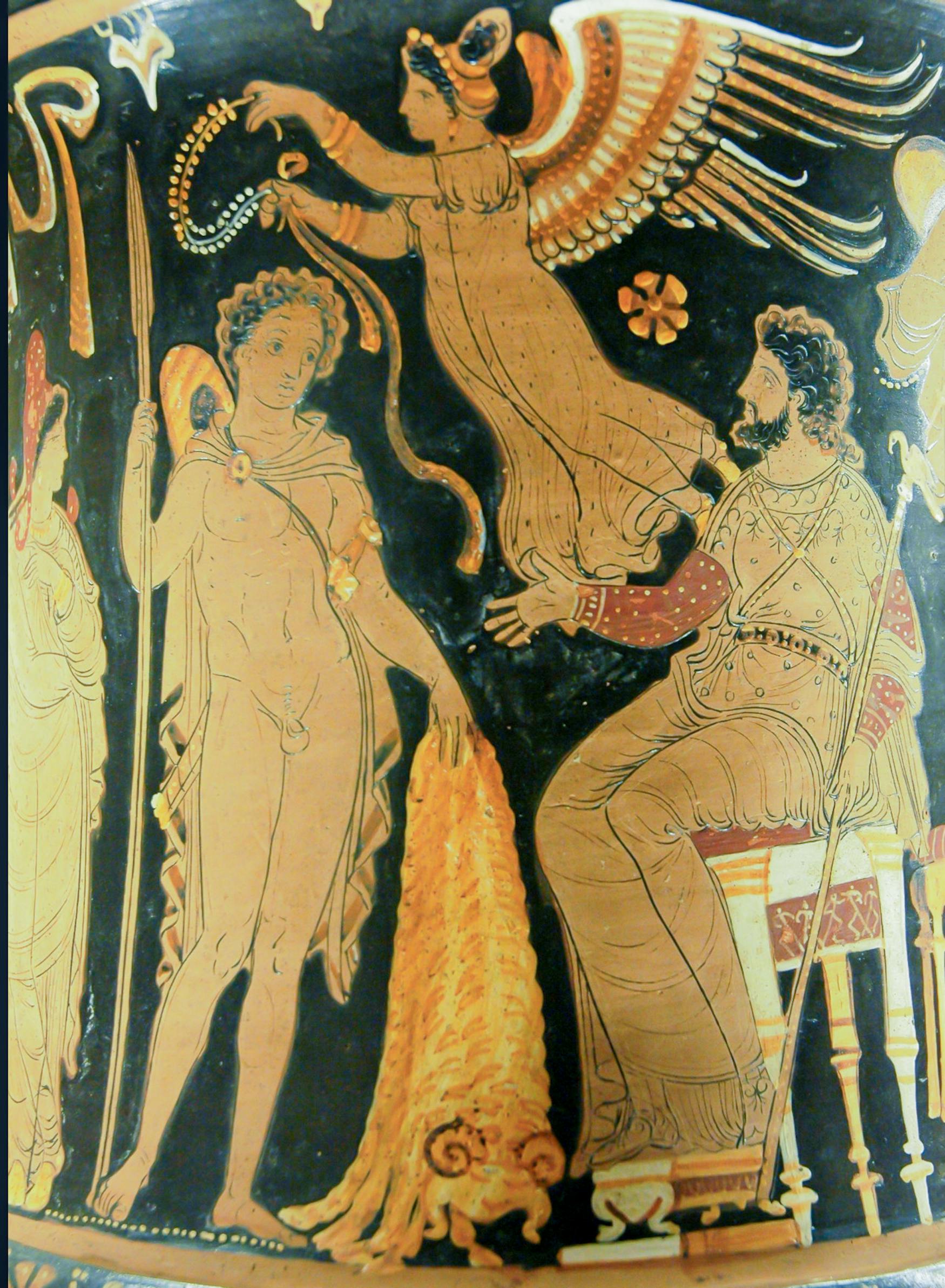Hold Thy Peace's "Argonautika"
This past weekend, Hold Thy Peace, the Brandeis Shakespeare and classics theater group, performed their spring semester show “Argonautika” by Mary Zimmerman. “Argonautika” is a modern adaptation of the Greek epic poem “Argonautica” written in the third century before the common era by Apollonius Rhodius. The story follows that of Jason and the Argonauts on their quest to retrieve the legendary golden fleece from Colchis and bring it back to Iolcus, Jason’s home. Set before the Trojan War, the Argonauts feature a star-studded cast of familiar heroes including Hercules, who joins the voyage in between his famous labors.
“Argonautika” invites the audience to consider the worthiness of such epic journeys like that of the one undertaken by Jason and his men. How does one weigh the often few material benefits of a quest against both the dangerous trials required to see the journey through and the inevitable loss experienced along the way? What drives epic heroes to undertake epic journeys? The concept of legacy, of course, further complicates these questions. After all many of the characters in the epic poem went on to feature in further stories and execute further deeds the likes of which whose consequences cannot be separated from their already existing legacy as an argonaut. While the play does not necessarily answer any of these questions it remains an interesting exploration of them.
According to the program written by HTP Director Dayla Lessem Elnecave ’27 “Argonautika” uses the Lookingglass theatrical style which employs “an ensemble cast (where almost all actors play many roles), physical and stylized storytelling, elements of acrobatics, nontraditional staging, and a lack of the fourth wall.” The student-led Brandeis production seamlessly incorporated these elements. Early in the narrative the Argonauts introduced themselves to the audience in a rhyming chant homage to the Shabooya Roll Call from “Bring it On: All or Nothing.” Hercules, played by Jateja Spriggs ’28, consistently broke the fourth wall while searching for their missing manservant Hylas, repeatedly questioning the audience in regards to his whereabouts. I had the pleasure of speaking with the legendary hero myself but unfortunately had to admit I also had not seen Hylas.
Additionally, I particularly enjoyed the production of the play’s lighting and sound effects, often used together to denote something magical happening in the story. Additionally, I enjoyed the story being told through Medea’s costuming. Medea, played by Eva Sanborn ’26, is the daughter of Aeetes, the King of Colchis. King Aeetes instructs Jason, Shelby Levine ’25, to complete an impossible task hoping that Jason will die and therefore be unable to take the golden fleece. Hera, Em Clemens ’28, and Athena, Madeline Rogala ’28, worry about Jason’s chances in the trial and conspire with Aphrodite, Peter Goswami ’27, to strike Medea with a love arrow so she will be compelled to assist Jason using her magical prowess. The arrow remains in Medea’s chest after being struck and the white dress surrounding her heart becomes stained with blood. Medea remains this way until she agrees to help Jason with the trial after which the blood stains on her dress grow in number and size. Finally after Medea has finished betraying her father and home to leave with Jason and the golden fleece nearly her entire dress is soaked in red. Medea’s costuming helps tell the visual story of her sacrifice to Jason, the misery it brings her and the eventual breaking of her heart by the end of the story.
Overall I enjoyed Hold Thy Peace’s production of “Argonautika” and the unique creative choices they made to adapt the epic.



Please note All comments are eligible for publication in The Justice.